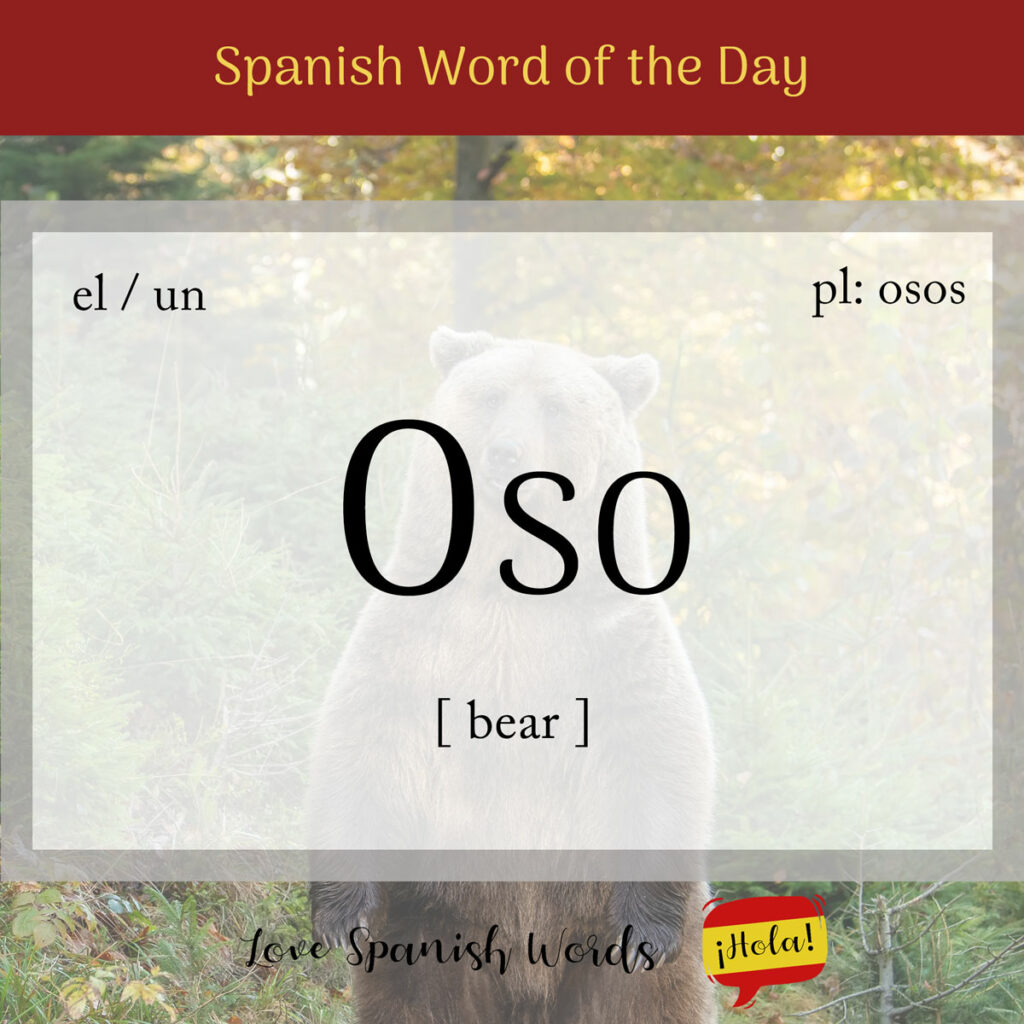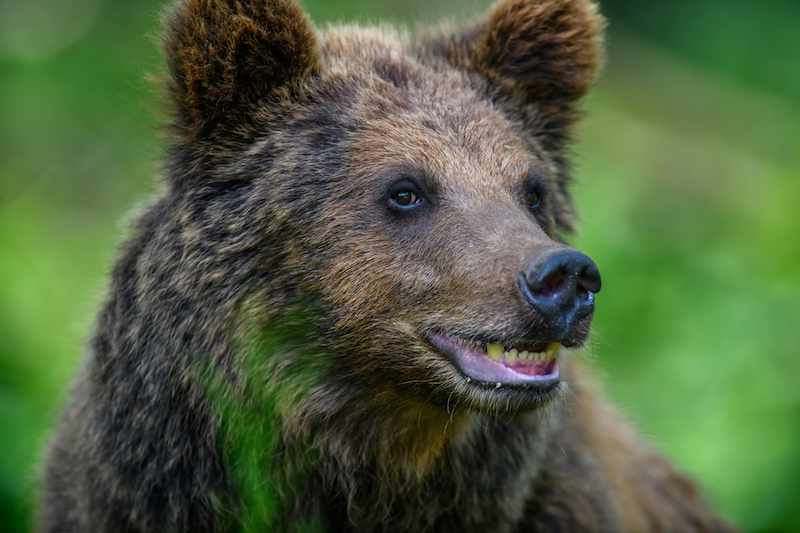The word for bear in Spanish is oso and it is derived from the Latin word ursus.
Latin American Pronunciation
European Pronunciation

It is a masculine noun that takes the following definite and indefinite articles:
- el oso = the bear
- los osos = the bears
- un oso = a bear
- unos osos = (some) bears
However, if you are referring specifically to a female bear, you can use the feminine equivalent osa. Here are the articles it takes:
- la osa = the female bear
- las osas = the female bears
- una osa = a female bear
- unas osas = (some) female bears
Sadly, only eight species of bear are still in existence today. They are the oso polar (polar bear), oso pardo (brown bear), oso panda gigante (giant panda), oso negro americano (North American black bear), oso tibetano (Asian black bear), oso de anteojos (spectacled bear), oso labiado (sloth bear) and oso malayo (sun bear).
Los osos hibernan en invierno.
Bears hiberate in the winter.
Bears – like humans – tend to be omnivorous (omnívoro) with the only exceptions being the oso panda gigante which feeds almost exclusively on bamboo, and the oso polar which is mostly carnivorous (carnívoro).
Typically solitary animals, they are adept runners, climbers and swimmers and use caves (cavernas) and logs (troncos) as their dens (guaridas). Most species hibernate (hibernar) during the winter for up to one hundred days.

Did you know that…?
Oso is also the first person singular of the verb osar (to dare). Don’t worry about memorising this verb though – it’s fairly antiquated! These days, Spanish speakers tend to use the verb atreverse instead.
The diminutive osito literally means small bear and is used to refer to a teddy bear in Spanish (also known as oso/osito de peluche). It also functions as a term of endearment for children, similar to sweetie or honey in English. Just keep in mind that it must become the feminine osita if used towards a girl. What’s more, in some parts of Latin American, it is also the word for a baby’s onesie!
¡Qué lindo osito de peluche!
What a cute teddy bear!
If you want to talk about a bear cub, on the other hand, you need to use the word osezno.
Oso also appears in the names of other animals, such as oso marino (seal or literally “sea bear”), oso perezoso (sloth or literally “lazy bear”) and oso hormiguero (anteater or literally “anthill bear”).
As in English, you can call a really big hug an abrazo de oso (bear hug).

Spanish idiomatic expressions featuring ‘oso’
No hay que vender la piel del oso antes de haberlo cazado
Literal translation: You should not sell the bear’s skin before it has been hunted
English meaning: Don’t jump the gun / Let’s not be hasty
Hacer el / un oso
Literal translation: to make the/a bear
English meaning: to make a fool of yourself

